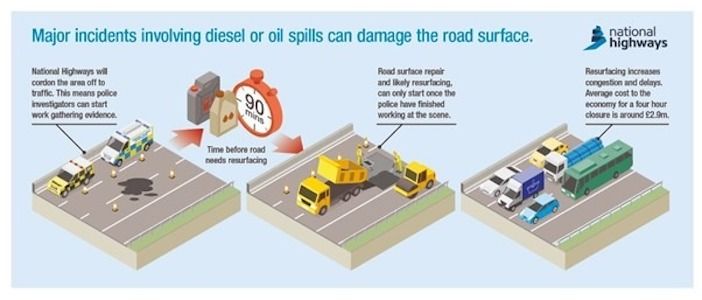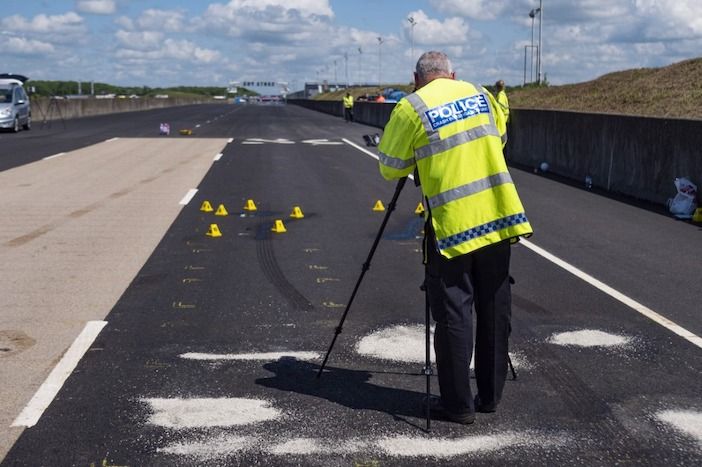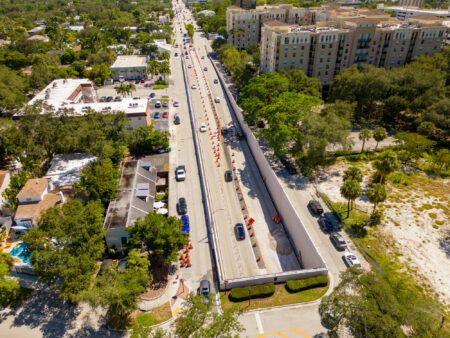The UK’s National Highways is carrying out a pioneering trial to test fluid-based treatments to see if they can absorb the spillages from a roadway without destroying crash evidence useful to police at the same location.
After a crash, while police forensic work takes place, access for National Highways teams to treat any spillages like oil and diesel is restricted. Yet it can take just 90 minutes for fluids such as these to damage the road surface. This means resurfacing work can be required, adding to further congestion and delays for motorists caught up in the aftermath of the incident.
In the ongoing test, forensic evidence such as tire marks and debris – usually found on the road following a major incident – were placed on the 200-metre trial area at Santa Pod Raceway, alongside diesel and oil samples.
The trial is now entering its next stage, with results from the forensic examinations being analysed to shape the next steps.

“The forensic testing process was very valuable, and we were able to test a range of products to see how they performed in a real-world scenario,” says National Highways on-road service delivery manager, Sian Norman. “Whenever there is a serious incident on the network, we know that police investigation work is vitally important, but we must manage that aspect against getting traffic moving again and alleviating congestion.”
National Highways joined forces with the Forensic Collision Investigation Network (FCIN) and Kier Highways for the special trial, involving significant research and development, and adopting ground-breaking innovation.
The trial, worth more than £270,000, is funded from the National Highways Innovations Designated Funds program and incorporates techniques in a ‘real-world’ testing environment.





